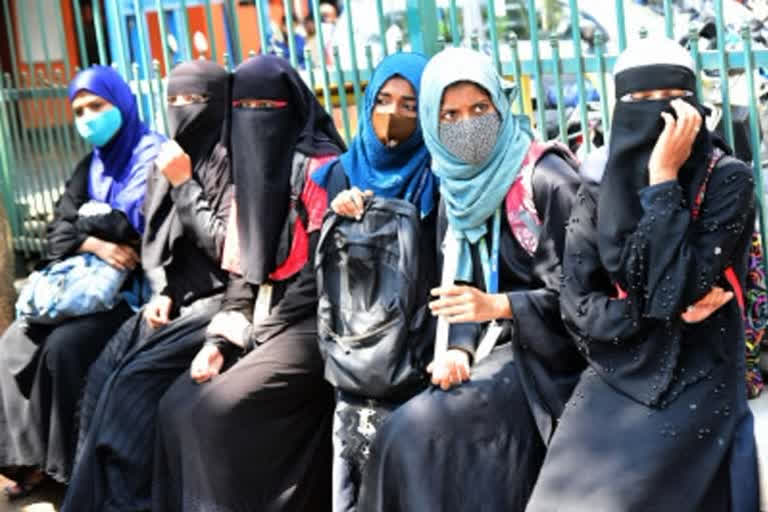Delhi:The Supreme Court on Tuesday continued to hear the petitions against the Karnataka High Court's order upholding the ban on Hijab in educational institutions. Marking the eighth day of the hearing today, a Supreme Court bench comprising Justices Hemant Gupta and Sudhanshu Dhulia deferred the hearing for September 21.
During the proceedings that began at 11 am on Tuesday, petitioner's Advocate Dushyant Dave argued that everybody has a right to enjoy religious freedom in the most personalized and individualistic way possible, while the only limitation is that it does not hurt anyone or defy the constitution. "The girls want to wear the Hijab. So, whose constitutional right is violated? The other students? The school?" adv Dushyant Dave asked rhetorically.
Further calling the hijab the 'religious identity of the Muslims', advocate Dave said, "Hijab is a bond that holds the community together. Everybody looks at the almighty in different ways. Those who go to Sabrimala wear black clothes, because that's the tradition. The same applies to the Hijab," he said. During the last hearing, Dave had alleged that the act of banning the hijab is an attempt to marginalize a minority community in the country.
SG Tushar Mehta appeared for the state and argued before the court that the hijab was not being worn in schools till 2021. He argued that after the Popular Front of India (PFI) created an issue, the government had to intervene to tackle the situation and therefore made the rules that no saffron cloth, no hijab, nothing will be allowed in school.
Arguing against the petitioner, Solicitor General Tushar Mehta said that there is nothing to prove the mention of hijab as a religious compulsion in the Quran. "Even if it was mentioned in the Quran, it does not imply that everyone following Islam is compelled to do so. There are Islamic countries run by a constitution protesting against the Hijab across the world," the SG said.
"Anyone can claim anything to be an essential practice. Tomorrow if someone says that drinking on road is my essential religious practice, would that be allowed?" the SG asked, to which Justice Dhuliya responded that the act is in violation of the public act of morality under article 19 and shall therefore be criminalized.
